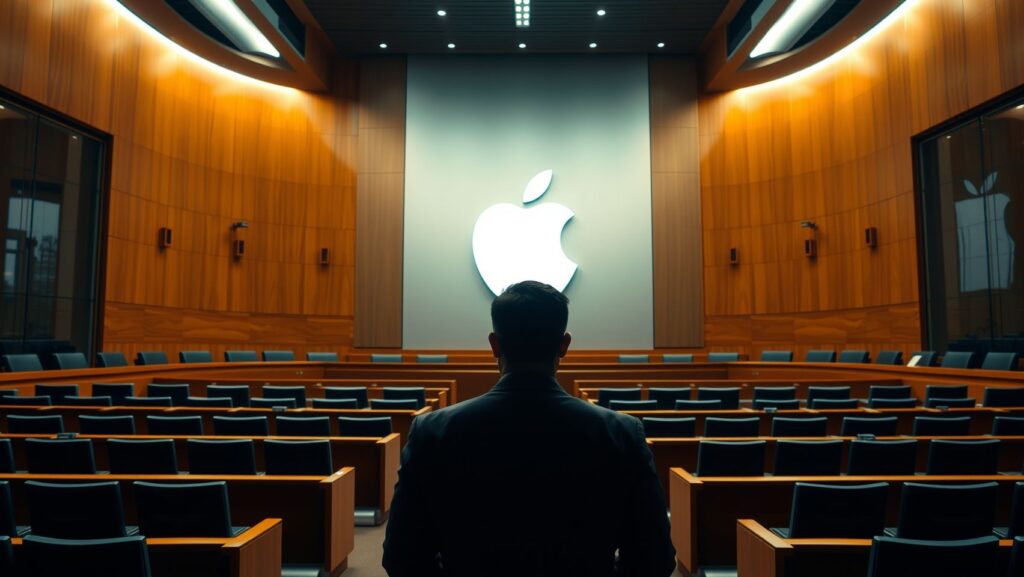Luc Olinga, the CEO of startup that’s developing a rival to ChatGPT, has made a bold claim: AI will replace recruiters and assistants in just six months. This statement has sparked a lot of debate and curiosity, and in this article, we’ll dive deeper into what this means and what it might look like.
Understanding How AI Can Replace Recruiters and Assistants in Six Months
AI has been making waves in the job market for some time now, and many experts believe that it will continue to disrupt traditional recruitment and assistance methods. According to Luc Olinga, AI will be able to perform tasks that were previously handled by recruiters and assistants, such as screening resumes, conducting interviews, and even making hiring decisions.
“AI will replace recruiters and assistants in the next six months. It’s not a question of if, but when.” – Luc Olinga, CEO of startup
But how does this work? According to Olinga, AI will use natural language processing and machine learning algorithms to analyze resumes, cover letters, and other job application materials. It will then use this information to identify the most qualified candidates and present them to employers.
Key Components of AI Replacing Recruiters and Assistants
So, what are the key components that make this possible? According to Olinga, there are several factors at play:
- Natural Language Processing (NLP): This allows AI to understand and interpret human language, making it possible to analyze resumes and cover letters.
- Machine Learning Algorithms: These allow AI to learn and improve over time, making it possible to identify patterns and make predictions about job applicants.
- Data Analytics: This provides the raw material for AI to analyze and make decisions about job applicants.
- Cloud Computing: This allows AI to process and analyze large amounts of data quickly and efficiently.
Core Principles Behind Ai Boom
So, what are the core principles behind this technology? According to Olinga, there are several key principles:
- Automation: AI will automate many tasks that were previously handled by recruiters and assistants.
- Data-Driven Decision Making: AI will make decisions based on data, rather than human bias or intuition.
- Scalability: AI will be able to handle large volumes of job applications and process them quickly and efficiently.
- Personalization: AI will be able to tailor job recommendations to individual job applicants.
The Science of AI Replacing Recruiters and Assistants in Six Months
But what does this look like in practice? According to Olinga, AI is already being used in various industries to streamline recruitment and assistance processes. For example:
- Airbnb uses AI to screen resumes and identify top candidates for job openings.
- Amazon uses AI to analyze job applications and identify the most qualified candidates.
- Zenefits uses AI to automate the hiring process, from resume screening to interview scheduling.
Breaking Down
So, what are the key facts and tips to keep in mind?
- AI is already being used in various industries to streamline recruitment and assistance processes.
- AI will automate many tasks that were previously handled by recruiters and assistants.
- AI will make decisions based on data, rather than human bias or intuition.
- AI will be able to handle large volumes of job applications and process them quickly and efficiently.
Final Thoughts
In conclusion, AI will likely replace recruiters and assistants in the next six months, and it’s not a question of if, but when. According to Luc Olinga, CEO of startup, AI will use natural language processing and machine learning algorithms to analyze resumes, cover letters, and other job application materials, and make hiring decisions based on data. While this may seem daunting, it’s important to remember that AI is already being used in various industries to streamline recruitment and assistance processes, and it’s likely to continue to evolve and improve over time.
| Benefits of AI in Recruitment |
|
|---|---|
| Challenges of AI in Recruitment |
|
AI will revolutionize the way we recruit and assist, and it's essential to stay ahead of the curve by understanding the benefits and challenges of AI in recruitment.
By understanding the key components, core principles, and science behind AI-driven recruitment, we can prepare ourselves for the future and make the most of this technology. As Luc Olinga, CEO of startup, says, “AI will replace recruiters and assistants in the next six months. It’s not a question of if, but when.”



